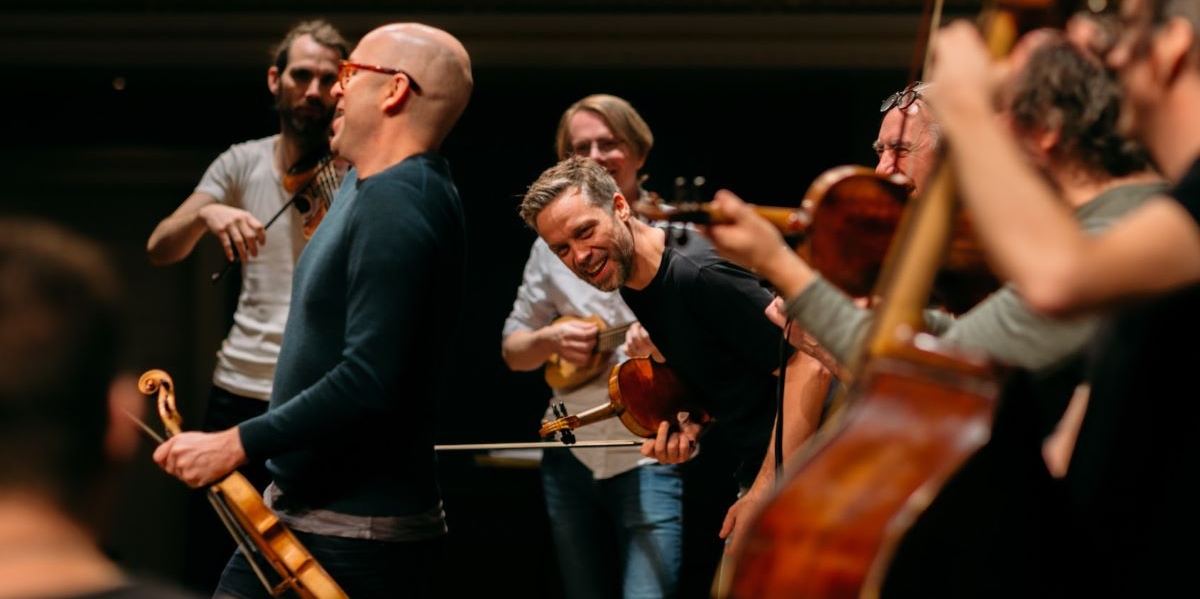It is hard to conceive of Schubert’s classic song cycles outside the reverential setting of a chamber venue such as Wigmore Hall, pianist and soloist on stage, both spotlit, but otherwise unadorned. Indeed for many audience members it is still an eyes-shut experience of spiritual intensity and dramatic austerity. Yet it is worth remembering that in Schubert’s own days the performance context could not have been more convivial and unbuttoned – a ‘Schubertiade’ involved all the senses at once, friends, frolics and frothing tankards. It is that ambience that Thomas Guthrie and the Alehouse Boys seek to recreate here, in ‘Die schöne Müllerin’, and do so to striking effect.
Alongside baritone Guthrie delivering the twenty songs in the original German are strings and guitars led by Bjarte Eike on violin. The piano lines and textures are redistributed and extra curlicues of decoration added. Splashes of pizzicato and emphatic unison chords provide distinctive points of illumination and reinterpretation. The tempi are moderate rather than exploring exaggerated extremes, and Guthrie himself offers a polished if sometimes quite cool interpreation of the young miller’s romantic travails. The opening song is a particular surprise with added syncopations to suggest the stream is already running through rocky shoals right from the outset.
It is an immediately engaging sound and a most imaginative take on the cycle as a whole. The dramatic scenes of ebullient euphoria and searing jealousy work particularly well with the added edge and bite of stringed instruments played for urgent effect rather than sheer beauty. And when the size is taken down to a cello line or insinuating, intimate guitar strumming you are really drawn into the more intimate moments of gentle lyricism as the instruments surround the voice in a delicate halo of sound. In the final lullaby the song winds down like a musical box that runs out of natural motion just as the miller’s love and life expire too.
But the range of this sound world does begin to pall by the end. A Schubert song cycle is a bit like a round of golf. While the player or singer may well see off the challenges of the opening nine holes, the back nine may be an entirely different matter. And so it is here. As the mood of the songs darkens, turning both sarcastic and inwards towards despair, you begin to miss the fuller tonal palette of the piano and the interpretive decisions of the individual song pianist.
Nevertheless this is a stimulating and worthwhile experiment that will doubtless come into its own even more in performance than in private listening at home. It breathes new life into a cycle that can be stale and formulaic in the wrong hands. Given the huge range of Schubert songs, there are plenty of further opportunities here for this group to adapt and apply its approach to further repertory and introduce these peerless songs to new audiences for whom the traditional ambience might be intimidating or alien. And of course it is a tribute to and further confirmation of the qualities of the originals that the cycle can so easily roll with the application of entirely new performance techniques.

